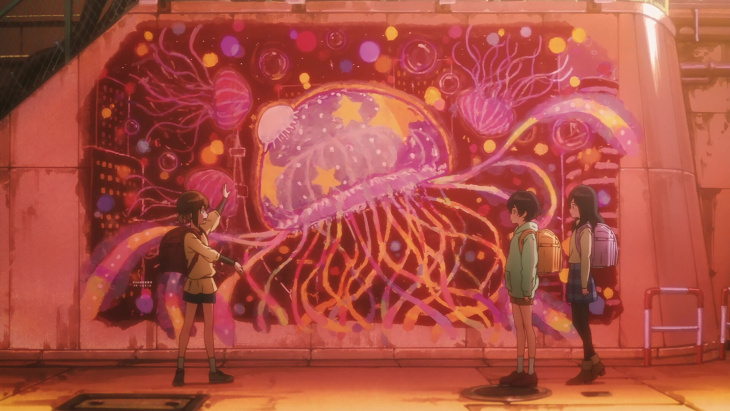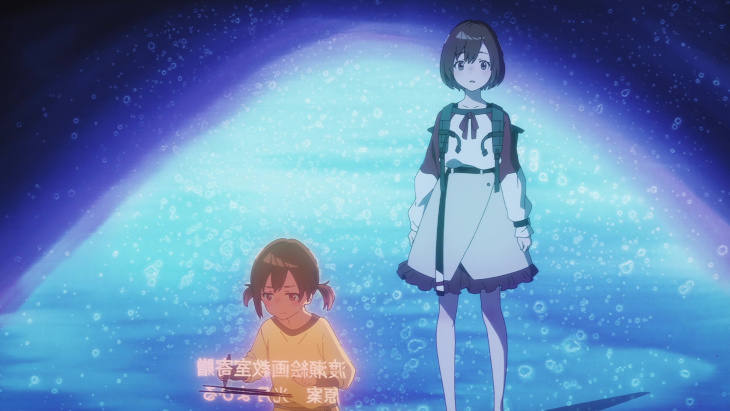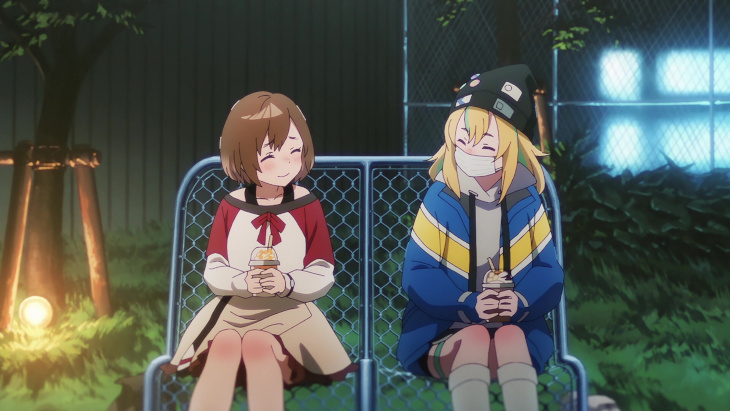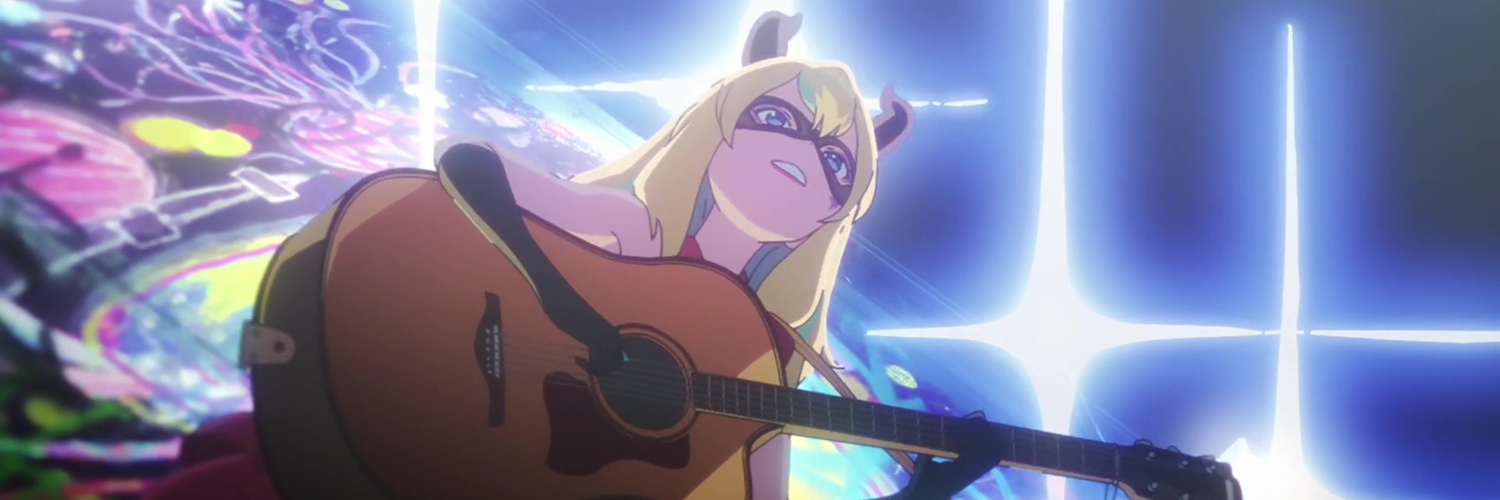
“When I’m in a town where no one recognizes me, drifting around as aimlessly as a jellyfish, I don’t have to worry about who might be watching.”
Truth be told, Jellyfish Can’t Swim in the Night almost slipped by me without a second glance… like a jellyfish at night, I guess. In that regard, it’s fortunate that the other shows I was planning on checking out in this period either turned out to be more irritating than anticipated (Vampire Dormitory, Grandpa and Grandma Turn Young Again) or weren’t even licensed for streaming in the West (Girls Band Cry). If I’d burned time on one of those shows, I might have missed out on Jellyfish Can’t Swim.
So far, this season has been largely average, so I’m eager for anything that stands out. I can’t deny I’m a sucker for works about the creative process, and the story of two artists pooling their talents to both expand their horizons and overcome past rejection stands head and shoulder above most of its competition this season. I’m not going to pretend it’s perfect, as some dramatic moments can feel telegraphed, and a delicate hand might oxymoronically land more heavily. In spite of that, Jellyfish Can’t Swim is now on my must-watch list for this season, and anyone who likes musical anime or stories about creative characters should give it a chance.

The story follows Mahiru Kozumi, a high schooler plagued by her past dreams of being an artist. When she was younger, her art was selected as the basis for a mural, but the proud memory became tainted when her friends, unaware of its origins, mocked it. Now at age 17, Mahiru remains conflicted about her decision to set her art aside, and is gradually becoming bitter about her regrets. One evening, while wandering past her now graffitied mural, she sees a performer who has covered the mural with posters. Much to her dismay, another girl her age berates the performer for the treatment of the mural. This is a compelling setup for a character, but there is a strange sense that Mahiru’s decision to bury her creative instincts occupies a solid 85% of her thought process. It’s a cavalcade of regrets, instead of the more natural hollow ache of abandoned dreams. It doesn’t help that her school friends constantly allude to it. As a result, the drama feels more manufactured than it should.
The pairing of our leads, Mahiru and the more outgoing Nonoka Tachibana, does an effective job of driving the narrative. The episode’s climactic moment feels a little excessive, but often the instances where the theatrics hit hardest are when those two engage with each other. There are evidently two other leads that have yet to be properly introduced, but I’m curious how they’ll fit into the dynamic. I’m also wondering if this show is planning to tread into yuri territory, as some of the interactions between Mahiru and Nonoka seem distinctly flirtatious. I don’t know that I’ve ever just whispered into an acquaintance’s ear.

I think I tend to judge Doga Kobo too harshly as a studio. One component of that is that I have a bad habit of confusing them with Liden Films, and that’s not a fair comparison. Both studios have an uneven level of quality across their works, including a few standouts, but generally, Doga Kobo’s productions have more consistent merit. Still, the last few works from them haven’t been to my liking, but I hope Jellyfish Can’t Swim will break that trend. This is their first original work in 6 years, so there is a lot of uncertainty surrounding it.
I’m a little ambivalent towards the music in the episode, but I think that might be an issue with the busy production. With the sweeping camera movements, it’s difficult to balance reading subtitles and watching what’s going on. As such, it’s hard to judge that segment, as I feel I might be equipped to evaluate it as it was intended.
Before I wrap up, a few Notes and Nitpicks:
- Doga Kobo received a lot of praise last year for Oshi no Ko. I’ve heard good things, but I never sampled it. There is a second season coming out this year, so maybe I’ll keep an eye out for chances to get caught up.
- The last few Doga Kobo shows I watched are Shikimori’s Not Just a Cutie, Sing “Yesterday” for Me, and Asteroid in Love. That’s a spectrum that ranges all the way from “…Eh” to “…Meh.”
- The reason I originally planned on skipping this premiere was because Girls Band Cry was coming out a few days before, and I didn’t want to double up on genres too much. As I mentioned earlier, that plan fell apart due to Girls Band Cry not being licensed in the states, as far as I’m aware.
- I wouldn’t call the show fanservice laden, but it does have a tendency to linger in awkward shots of Mahiru that I consider off-putting.
Jellyfish Can’t Swim in the Night is an intriguing, creative adventure on multiple levels. It’s lacking in subtlety, but makes up for it with a strong premise, vibrant production, and engaging characters.




Add comment